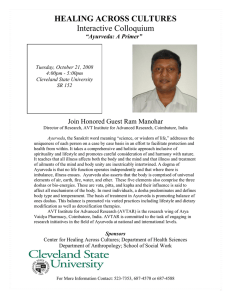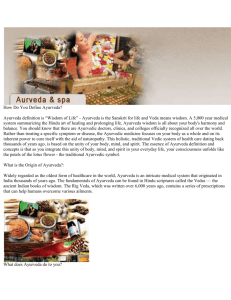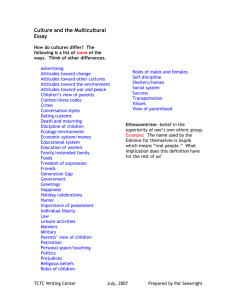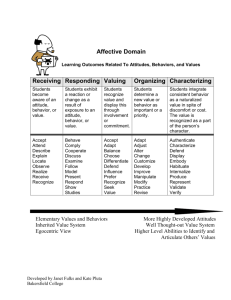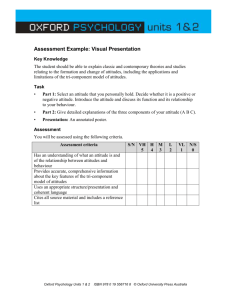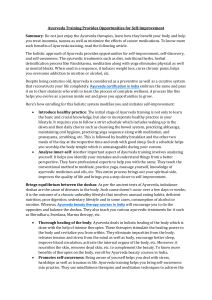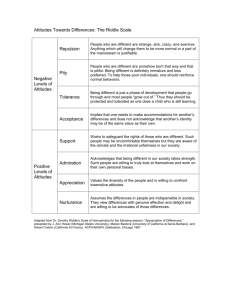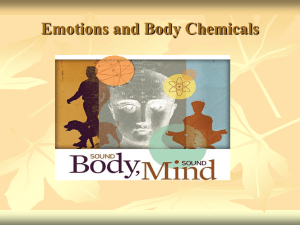Stress and Business - Diamond Way Ayurveda
advertisement
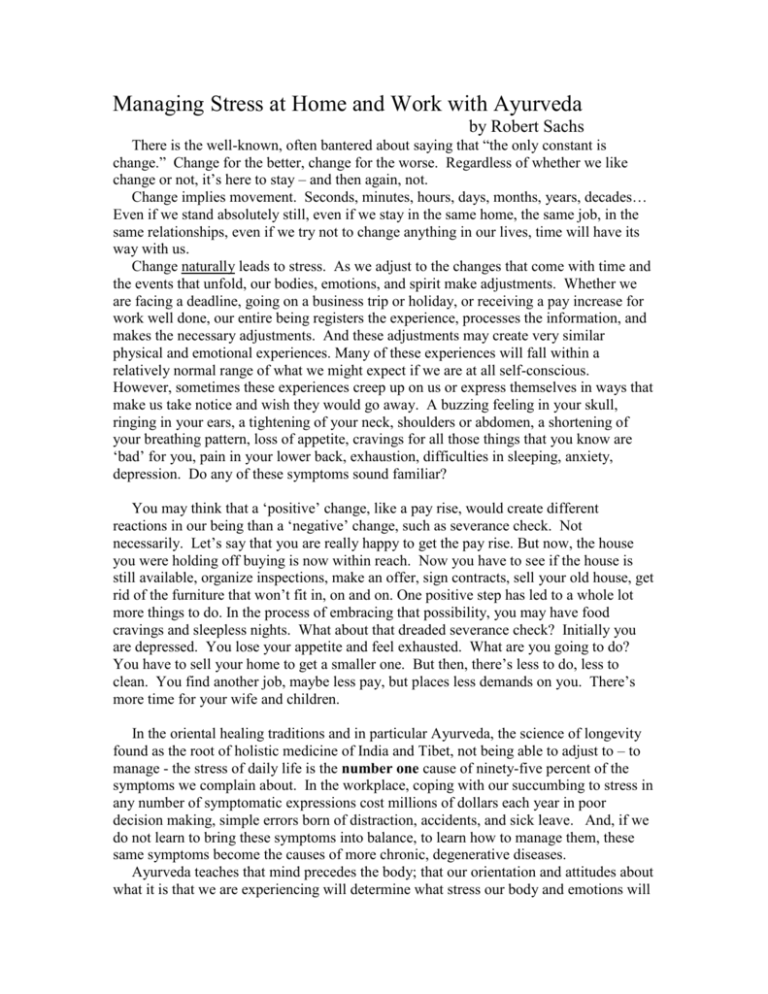
Managing Stress at Home and Work with Ayurveda by Robert Sachs There is the well-known, often bantered about saying that “the only constant is change.” Change for the better, change for the worse. Regardless of whether we like change or not, it’s here to stay – and then again, not. Change implies movement. Seconds, minutes, hours, days, months, years, decades… Even if we stand absolutely still, even if we stay in the same home, the same job, in the same relationships, even if we try not to change anything in our lives, time will have its way with us. Change naturally leads to stress. As we adjust to the changes that come with time and the events that unfold, our bodies, emotions, and spirit make adjustments. Whether we are facing a deadline, going on a business trip or holiday, or receiving a pay increase for work well done, our entire being registers the experience, processes the information, and makes the necessary adjustments. And these adjustments may create very similar physical and emotional experiences. Many of these experiences will fall within a relatively normal range of what we might expect if we are at all self-conscious. However, sometimes these experiences creep up on us or express themselves in ways that make us take notice and wish they would go away. A buzzing feeling in your skull, ringing in your ears, a tightening of your neck, shoulders or abdomen, a shortening of your breathing pattern, loss of appetite, cravings for all those things that you know are ‘bad’ for you, pain in your lower back, exhaustion, difficulties in sleeping, anxiety, depression. Do any of these symptoms sound familiar? You may think that a ‘positive’ change, like a pay rise, would create different reactions in our being than a ‘negative’ change, such as severance check. Not necessarily. Let’s say that you are really happy to get the pay rise. But now, the house you were holding off buying is now within reach. Now you have to see if the house is still available, organize inspections, make an offer, sign contracts, sell your old house, get rid of the furniture that won’t fit in, on and on. One positive step has led to a whole lot more things to do. In the process of embracing that possibility, you may have food cravings and sleepless nights. What about that dreaded severance check? Initially you are depressed. You lose your appetite and feel exhausted. What are you going to do? You have to sell your home to get a smaller one. But then, there’s less to do, less to clean. You find another job, maybe less pay, but places less demands on you. There’s more time for your wife and children. In the oriental healing traditions and in particular Ayurveda, the science of longevity found as the root of holistic medicine of India and Tibet, not being able to adjust to – to manage - the stress of daily life is the number one cause of ninety-five percent of the symptoms we complain about. In the workplace, coping with our succumbing to stress in any number of symptomatic expressions cost millions of dollars each year in poor decision making, simple errors born of distraction, accidents, and sick leave. And, if we do not learn to bring these symptoms into balance, to learn how to manage them, these same symptoms become the causes of more chronic, degenerative diseases. Ayurveda teaches that mind precedes the body; that our orientation and attitudes about what it is that we are experiencing will determine what stress our body and emotions will go through adjusting to change. As this experience becomes translated into concrete thought patterns and physical symptoms, our emotions and bodies then reinforce our orientation and attitudes. A symbiotic relationship is then created; mind reinforcing bodily experience and emotions, emotions and bodily experience exacerbating and reinforcing the mind. A vicious cycle can be set up which is then quite difficult to break.. It can even be that your attitude about something in your life is newly changed. You have a whole new look on life, but you still have the same old aches and pains. Here, what we see is that the physical and emotional patterns of your previous outlook are still buried in your tissues; your muscles, bones, even your emotional responses. Somehow, you have to figure out how to uproot these old patterns, to shed what seems so old and stale so you can begin to enjoy your new way of seeing, of being. Translate this into your work life and the business world. Businesses and corporations develop ways of doing business that need to adjust constantly to any number of factors; up markets, down markets, needs for new products and new approaches, changes in staff, even changes in the lives of staff, and so on. Stress is in the business place! Consequently, managing stress in the business place is both relevant and necessary in order for business and their staff to meet, engage, and transform what arises in times and circumstances for the better, for a profit, for the future. In such an environment, the holistic model of Ayurveda, can be immediately practical and beneficial. Stress management needs to be addressed on different levels. A change of attitude, of orientation is of primary importance. When it comes to stress in the business world, one sees programs for developing better problem solving skills, to enhance communication, encourage greater cooperation, and promote enthusiasm. The goal is to transform negative attitudes and patterns of behavior into positive, nurturing, productive ones. There are also any number of standardized tools for testing of staff skills and attitudes, the purpose of which is to match personnel to job description. Such tests have proven effective in enhancing job satisfaction. Progressive businesses and corporations have proven the success of working with the mental and emotional stresses inherent in work life. However, businesses and corporations that have been willing to go the extra mile, to addressing the more physical and spiritual needs of their employees have seen even greater rewards in the work place and in the market. Put simply, physical stress can be quite undermining to even the most productive, positive employee. Intractable back pain, migraine headaches, difficulties in sleeping will take their toll. Whilst each of these symptoms can be identified with attitudes, Ayurveda also identifies what types of foods and activities will reinforce if not exacerbate these attitudes. One needs to look more closely at a person’s lifestyle to determine whether or not they are eating, exercising, addressing their physical needs to promote balance and harmony, or stress. Ayurveda recognizes that it is far easier to adjust a lifestyle factor such as diet than it is to change an attitude initially. In fact, cleaning the body out, making it lighter and freer in expression can actually support a change of attitude down the line. Thus whilst focusing on attitudes and transforming them can uproot stress at its inception, once the ‘cow is out of the barn’ one needs to do something more practical and immediate, addressing the physical aches and pains first. As a front-line tactic, Ayurveda focuses on diet, exercise, relaxation skills, hygiene, and meditative exercises. I call this stress inoculation. Not only can addressing these factors clear up stress-related symptoms such as insomnia, headaches, etc., as new stresses arise – which they will – the body is more flexible and able to cope with new tests. Ass the body is more relaxed and supple, there arises a natural ease in bringing ones focus back to the attitudes ands orientations that got one to this painful predicament in the first place. In mentioning spiritual, I am not here referring to any form of religion. Rather, I am speaking of supporting a frame of mind that is open to possibility and sensitive to the needs of those within the company and beyond. This also implies a morality that is common to all of the world’s wisdom traditions. Without a morality that promotes decency, honesty, and respect in all of our relationships and forms of communication, the greater the likelihood that discord and mistrust will lead to higher levels of stress and its myriads of manifestations. In that regard, there are texts in the eastern healing and spiritual traditions that outline how acts of deceit and disregard for others in a variety of ways affect our bodies, emotions, and spirit. They even explain the mechanics of how such acts of kindness, love, and compassion can improve our health, well-being, even the strength of our immune system to cope with life’s never ending challenges. This can even explain what the relationship is between pain and suffering. You can experience something as painful without it necessarily causing suffering. In a space of mindfulness, openness, and compassion you can far more easily embrace and work through a painful or challenging events or a physical crisis than if you meet those same physical challenges or events with hostility, bitterness, and resentment. And more than likely, when we reflect upon our own lives and those whom we have felt inspired by, we see the truth and sense in this approach. When such an awareness is brought to life at home and work, life and business flourish. When this awareness is reflected in management, it has a contagious affect on employees throughout a business. In today’s fast paced, ever changing world, stress management and with it, stress inoculation, are vital to productivity, success, and happiness in our day-to-day lives. If we are to cope with the changes that will inevitably come our way, whether anticipated or not, for better or worse, we need to create a body and mind that is vital, harmonious, and centered. The ancient holistic model of Ayurveda places the responsibility to accomplish this squarely on our own shoulders. Changing one’s ‘head-set,’ altering eating habits, getting proper exercise and rest all take discipline and perseverance. A commitment to such changes takes work, may take some breaking of old, even dear habits. But for us to tap into our natural capacities to experience and open up to possibility, to access our full potentials, and feel joyful along the way, then the old mold of habits needs to be broken. At home and in the many hours we devote to or are in our working environment, to manage and inoculate ourselves to stress ensures that we do not live in or succumb our problems or challenges, but rather have the resources to transform them.
